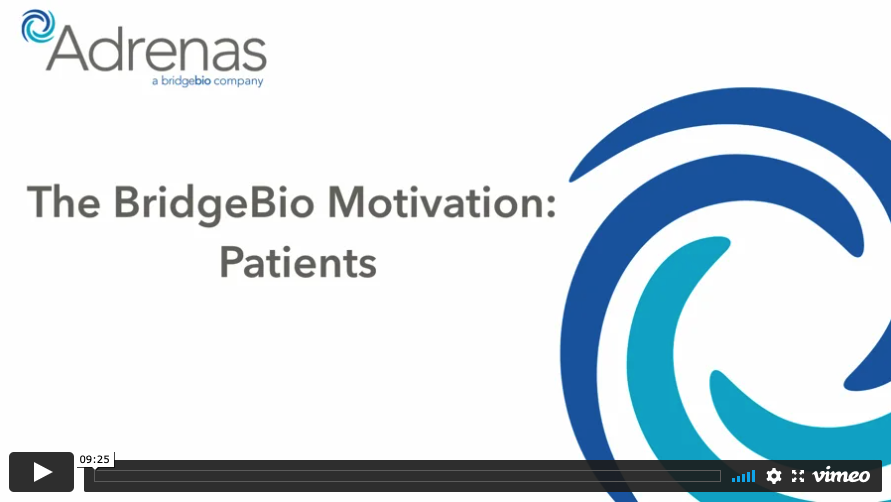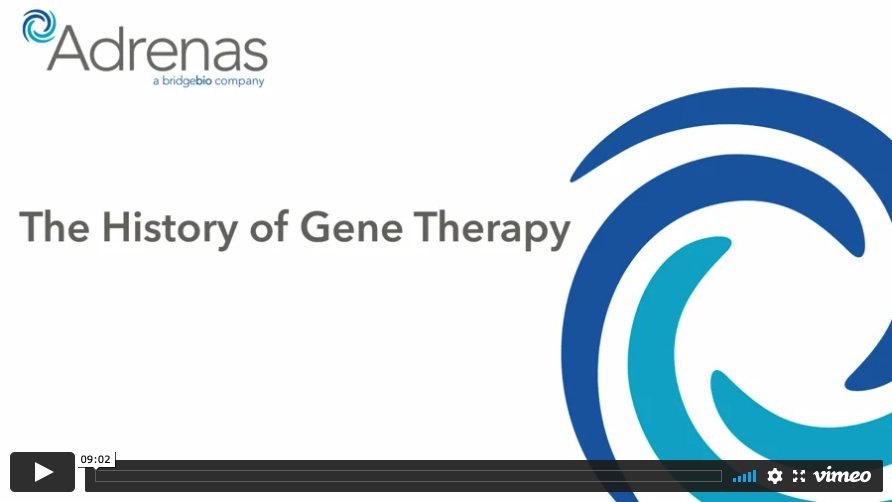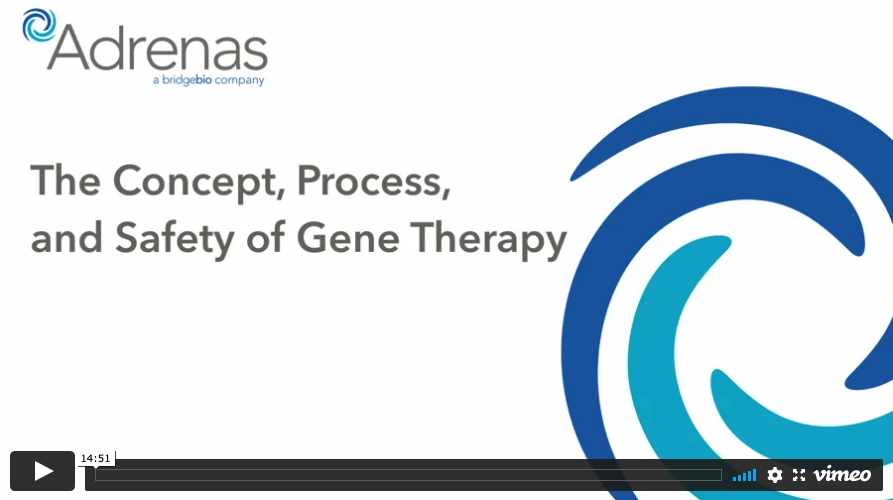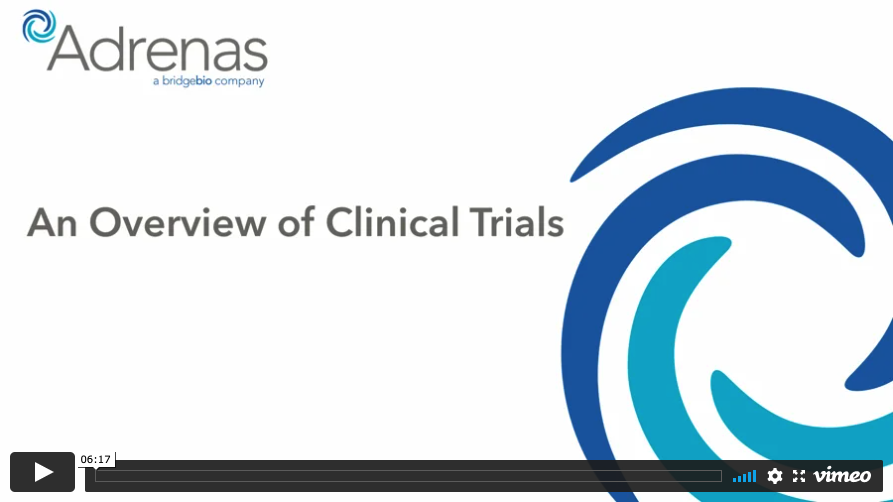Webinars:
CARES Foundation and Adrenas Therapeutics Town Hall Webinar
MAGIC Foundation and Adrenas Therapeutics Town Hall Webinar
Adrenas Therapeutics Webinar: Gene Therapy for CAH
Adrenas Therapeutics Webinar: Gene Therapy for CAH (Spanish)
Educational Video Series:
The BridgeBio Motivation: Patients
The History of Gene Therapy
The Concept, Process, and Safety of Gene Therapy
An Overview of Clinical Trials
FREQUENTLY ASKED QUESTIONS
What is the potential benefit of gene therapy for CAH?
If successful, gene therapy for CAH may restore the body’s hormone and steroid balance by enabling people with CAH to naturally make their own cortisol and aldosterone.
It could also allow for people with CAH to eliminate or significantly reduce their daily glucocorticoid or mineralocorticoid doses.
What is gene therapy? And how does it apply to CAH?
Gene therapy aims to treat genetic conditions by enabling the body to produce a critical protein that is missing.
Gene therapy does this by using a delivery vehicle to provide a functioning copy of a gene into cells that are missing or do not have a fully functioning copy of that gene.
People with CAH due to 21-hydroxylase deficiency have changes (mutations) in the CYP21A2 gene. The CYP21A2 gene is important for the production of 21-hydroxylase, a critical enzyme necessary for proper function of the adrenal glands. Mutations in CYP21A2 cause 21-hydroxylase to either not be produced or not be fully functional.
How is Adrenas’s investigational therapy designed to work?
Adrenas’ investigational gene therapy uses a common virus called adeno-associated virus (AAV) as the delivery vehicle for the CYP21A2 gene. You can think of AAV as a “delivery truck,” with the cargo being a functional gene. AAVs used in gene therapy are not associated with any known diseases in people, which is why they are used in gene therapy as the transport vehicles to deliver functioning genes into the body.
Is gene therapy new?
Although AAV gene therapy is new to CAH, it’s not new. A number of AAV gene therapies have been approved by the FDA.
Gene therapies have also been studied extensively in clinical trials for adults with hemophilia.
In total, gene therapies have been used to treat more than 3,500 people around the world, and more patients are being treated with gene therapy every day. There are currently 100+ active AAV gene therapy trials for a variety of diseases.
Long-term safety information for both the approved gene therapies and those still in development is being collected continuously. The American Society of Gene and Cell Therapy has additional information about gene therapies on its website (asgct.org/genetherapy101/).
Does AAV modify my genetic material?
Unlike CRISPR and other forms of gene editing, and unlike some other types of gene therapy, AAV gene therapy is specifically designed to avoid becoming part of your cell’s genetic material or DNA, and it does not get passed down to your children.
How often will patients in the clinical study need to get an infusion?
Adrenas’ investigational gene therapy is designed as a one-time intravenous infusion.
How long does a one-time infusion of gene therapy last?
Some AAV gene therapies have been shown to last for several years — even up to 10 years in an ongoing study. Because this is still a new science, long-term studies are being conducted to better understand how long the effects of AAV gene therapy will last.
When will adolescents, children, or infants be eligible for participation in the investigational gene therapy trial?
In order to follow guidelines provided by the FDA, the first clinical trial will be conducted in adults (ages 18 and above). Once an appropriate dose is found in adults with classic CAH, we plan to begin trials in children and adolescents with classic CAH.
Where can I go for additional information or for information to share with my doctor?
For any patient-related inquiries, please email [email protected].
For additional information about our upcoming clinical trial, please visit CAHGeneTherapy.com or contact [email protected].







